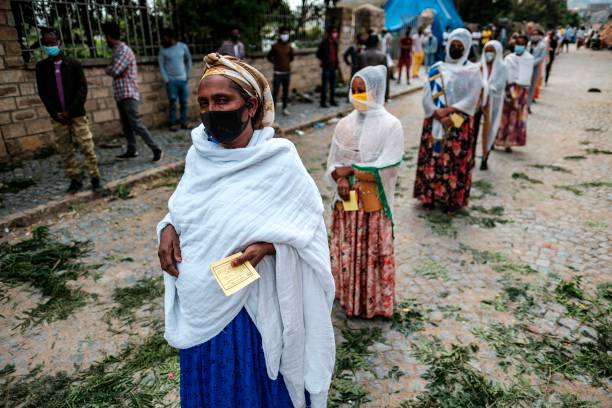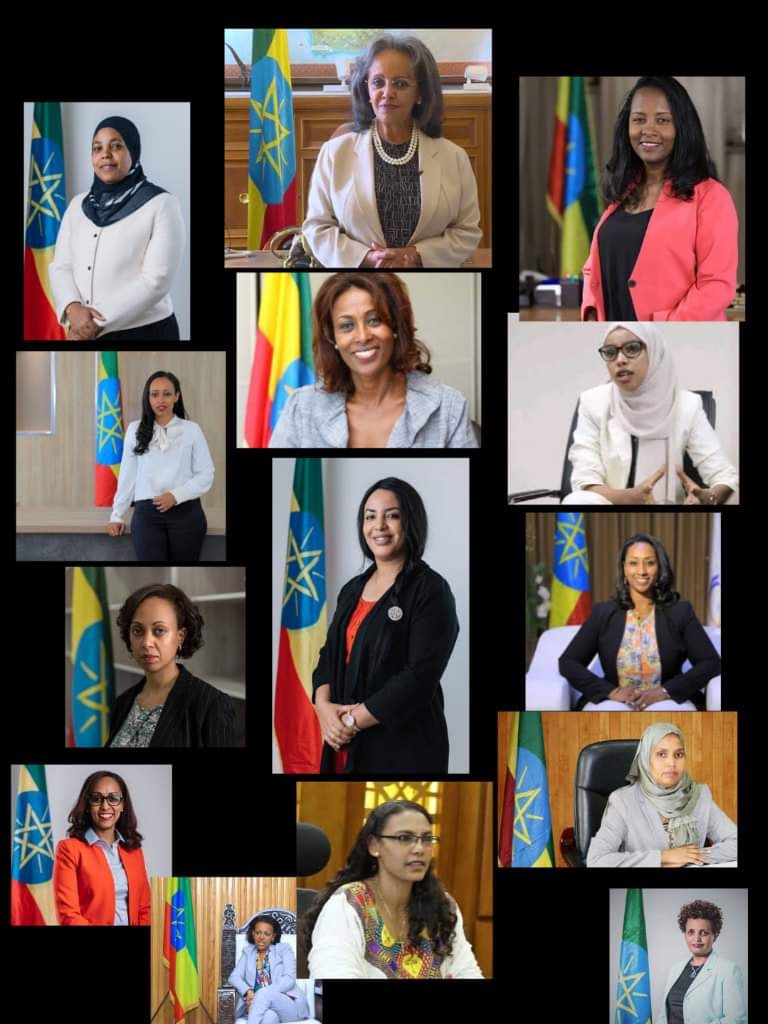Fleeing War – A Personal Experience



“I urge you all to uphold our peace, in the name of a mother, who is the first to suffer from the absence of peace.” It is hard to believe this remark came from the first female president of a country that is currently accused of invading its own region, starving its people in a man-made famine, ethnic cleansing, and weaponzied rape.
When addressing the Ethiopian parliament on the day of her appointment in 2018, President of Ethiopia Sahle-Work Zewde further claimed that “If the current change in Ethiopia is headed equally by both men and women, it can sustain its momentum and realise a prosperous Ethiopia, free of religious, ethinic and gender discrimination.”
In addition to appointing the first female president, Prime Minister Abiy Ahmed’s widespread reforms also included filling more than 50 percent of his cabinet with female ministers, including Minister of Health Dr. Liya Tadesse, Minister of Peace Muferiat Kamil, and President of the Federal Supreme Court Meaza Ashenafi. Such appointments were widely praised by gender equality advocates in Ethiopia and Africa. Many hoped that the appointments of women to senior positions of leadership would meaningfully challenge patriarchal systems in Ethiopia and that it would empower women and girls across the nation to achieve success.
The optimism for peace and gender equality under the leadership of women was short-lived, especially for Tigrayan women who have faced the brunt of the war on Tigray. As reported by multiple sources, including U.S. Secretary of State Antony Blinken, ethnic cleansing, man-made famine, weaponized Sexual and Gender-Based Violence (SGBV), and numerous other atrocities have been taking place in Tigray since Abiy Ahmed waged a genocidal war on Tigray in November 2020.
As the main tool of this genocidal war, women and girls have been subjected to horrific sexual violences, with some held captive as sex slaves for extended periods of time. As reported by multiple health facilities in various parts of Tigray, some of these women have been repeatedly raped and abused by multiple Ethiopian and Eritrean soldiers since the start of the war. Fathers and grandfathers have been forced to rape their daughters and family members. Nuns and elderly priests’ wives have been gang-raped in front of their husbands and children. Rape victims range from the age of 4 to the age of 72.
In the midst of all this, the silence of most of the female high-level Ethiopian officials has been deafening. Many have simply referred to the war on Tigray as a “law enforcement operation.” Though President Sahle-Work’s visit to Tigray’s capital, Mekelle, in early March 2021 might have appeared to acknowledge Tigrayan women’s experience, it was futile. The President’s visit to a one-stop center and safe house where SGBV survivors receive medical care proved counterproductive, as the President was accompanied by soldiers whose comrades are those who violently violated the SGBV survivors. Most of the women refused to talk to the President, in fear of retaliatory assaults after sharing their experiences. Some did however tell their stories and express what it means to be a Tigrayan woman in Tigray during this time.


Appointed as Ethiopia’s first Minister of Peace, Muferiat Kamil is supposed to foster and build peace, yet her inaction during such a time in Ethiopian history renders her position meaningless. The Ministry was created in 2018 to promote peace, democracy, development, and to help maintain law and order in Ethiopia. Since its creation, the Ministry has been criticized for not showing deserved interest in first resolving the tension between the federal government and the Tigray region, and then being complicit in a genocidal war.
After the war erupted, an African Union delegation and Tigray’s elected President Debretsion Gebremichael asked Abiy for a peaceful resolution of the conflict, which Abiy rejected. While expected to intervene, the Minister of Peace has failed to react to Abiy’s war on Tigray in which atrocities amounting to genocide are occurring. She also has stayed silent in the face of civil unrest and atrocities committed across the country.
Ethiopia’s legal system, which is also being led by a woman, has equally failed the young women and girls who were once empowered by her appointment. Meaza Ashenafi, who is an experienced lawyer, was appointed by Abiy as the President of the Federal Supreme Court of Ethiopia in 2018. Prior to the war on Tigray, Meaza had a reputation for standing up for women, as she gained fame when her story of representing a young woman who was raped was turned into a movie titled “Difret.” The movie, which was produced by Angelina Jolie, won multiple international awards. Yet, two years later, a woman who was once applauded for representing a rape survivor is now silent as thousands of Tigrayan women are being gang-raped, and going through what some have described as “a glimpse of hell.”
Some connect Meaza’s current behavior to controversial remarks she made in 2019 about the need for federal military intervention to capture high-level Tigrayan People’s Liberation Front (TPLF) officials, who she referred to as “criminals.” Her comments were critically rejected by Tigrayans, who saw the accusations against their elected TPLF officials as an attack on their right to self-determination. Before the war, Meaza also suggested enforcing “the rule of law” in Tigray, laying the foundation for Abiy’s Tigray “law enforcement operation” narrative when intending to conduct a genocidal war.
As an individual who was once inspired by the nomination of these women to positions of power in Ethiopia’s government, it is disheartening to see the way that these women have failed the Tigrayan people during the genocidal war on Tigray. The extent of heinous crimes being committed in Tigray and discrimination against ethnic Tigrayans across the country could have been minimized, if not stopped, had these officials stood for humanity. There is truly no justification to why these women have remained idle and complicit in war crimes and crimes against humanity during this unprecedented period of Ethiopia’s history.
Fana Gebremariam – Omna Tigray Contributor, June 2021